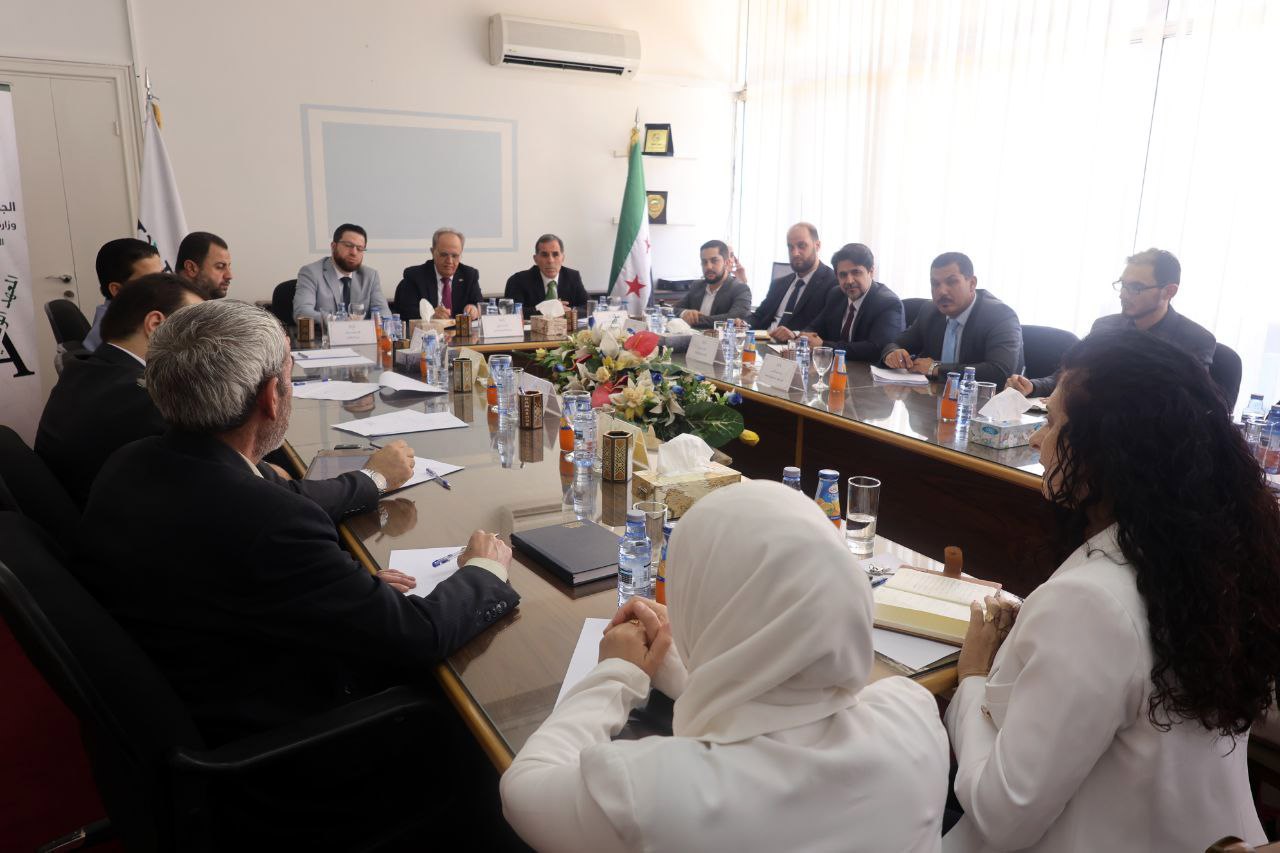Syrian National Institute for Public Administration "INA" Holds Meeting to Discuss Mechanisms for Developing Administrative Education

During the meeting, the Minister of Higher Education emphasized the importance of the integrated relationship between the Ministries of Education and Development, pointing out that the post-liberation phase requires a renewed educational system free of corruption, focused on serving citizens and improving the quality of administrative education.
Minister Al-Halabi also stressed the need to build an accurate database and a clear vision for developing the institute through curriculum updates, identifying challenges, in line with Syria's new development vision, reaffirming the ministry's full support for making political and administrative decisions that contribute to the institute's development.
In turn, the Minister of Administrative Development stated that the comprehensive transformation in Syria requires a radical change in administrative leadership to meet the requirements of the reconstruction phase and remove obstacles facing the advancement of the state's administrative structure, emphasizing that building administrative capacity is the cornerstone of building a modern state.
The Dean of the National Institute for Public Administration, Dr. Abdelhamid Al-Khalil, highlighted the importance of this meeting in the context of integrating efforts to develop competencies in both the public and private sectors, emphasizing that the institute's leadership attaches great importance to fulfilling its real role in the administrative development process.
The Board members discussed during the meeting the issuance of a national dictionary to unify the terms and concepts of public administration, establishing a refereed scientific journal to publish specialized research and studies in public administration, as well as amending the institute's regulatory systems, including the establishment decree, internal regulations, and financial system.
The meeting addressed compensations for graduates and faculty members to ensure equality with government universities, the importance of holding periodic scientific days that meet the requirements of administrative, economic, and legal development in Syria, launching specialized master's programs and diplomas to meet the needs of the public sector, reviewing training and admission policies to link the institute's outputs with the needs of public administration.
It is worth mentioning that since its establishment in 2002, the National Institute for Public Administration has graduated around 900 male and female students who have been appointed in public administrations. The institute's programs are based on curricula aligned with those of the French National Institute for Public Administration, enhancing its position as a national incubator for developing leadership cadres in the state.